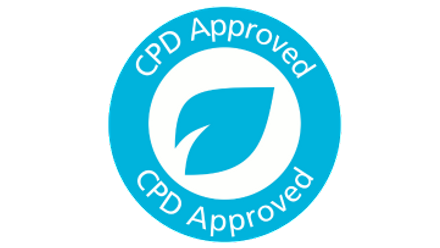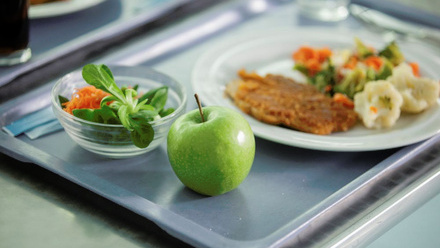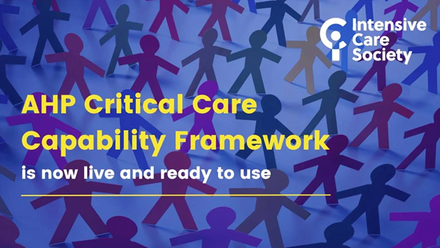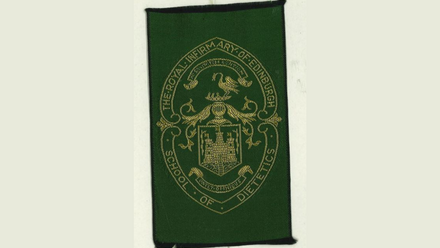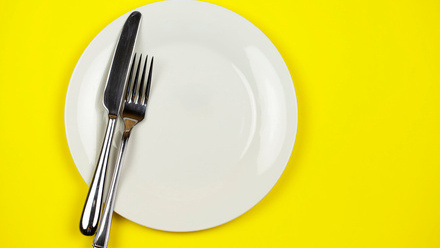Introduction
Nutrition while on the intensive care unit (ICU)
What type of feeding did I receive?
When you are critically ill, it is very important that you have the right type and amount of nutrition to help your body heal and gain strength as quickly as possible. Your medical team will make sure this happens, and a dietitian may also have been involved in your care.
There are different ways of providing nutrition when you are critically ill:
By mouth (oral)
If you were able to eat and drink normally by mouth, you will have been offered meals and snacks. You may have also had high energy and protein drinks or puddings. These are called nutritional supplements. You will have been given these if you were finding it hard to eat enough to get the nutrition you needed.
Feeding by a tube into your stomach (called enteral feeding)
When you were critically ill, you may have needed help to breathe from a ventilator (breathing machine). This usually means that you will not have been able to eat and drink normally. Instead you would have been given liquid nutrition (also called artificial nutrition, enteral feeding or tube feeding) through a thin plastic tube. These feeding tubes go through the nose and then into your stomach or small bowel. Usually the dietitian would have worked out how much nutrition you need and would have given you this by using ready-made liquid food. The dietitian and your ICU medical team will have monitored how well you absorbed this nutrition.
Once the breathing tube was removed, you may have continued using the feeding tube until you were able to eat and drink enough by mouth. This is because it is common to have difficulties with eating and drinking after critical illness and so it is difficult to eat and drink enough straight away.
Feeding by line into your veins (called parenteral nutrition)
Parenteral nutrition (also called intravenous feeding) is sometimes used when your digestive system isn’t working as well as it normally does, and you aren’t absorbing enough nutrition from what you eat or get through a feeding tube. Your medical team may then give you artificial nutrition directly into your veins through a thin plastic line (also called an intravenous drip).
There are different reasons why you may have needed or still need feeding in this way, for example if you:
- had a leak or blockage in your digestive system (called the gastrointestinal tract)
- weren’t able to have tube feeding, for example where a feeding tube could not be placed successfully in your stomach
- if your digestion needed more time to get back to normal for example, after bowel surgery or during severe sepsis (a severe infection that affected all your body’s functions).
Usually feeding into your veins is only used for a short time, and then tube feeding or eating by mouth will be tried again.
Changes in weight and strength because of critical illness
Why have I lost weight?
It is very common in critical illness to lose weight and muscle (so your arms and legs may be thinner than they normally are). This is the body’s reaction to severe illness and can happen, even when we get enough nutrition in ICU.
To have a lot of unplanned weight loss, or being a low weight for your height is not good for you. This is also called being malnourished or malnutrition. It can happen in many critically ill patients because of a mismatch between what your body needs and what it received or absorbed from the nutrition that you have. Malnutrition can make infection more likely, cause longer hospital stays, and increase the time it takes for you to recover. This is why your doctor, nurse or dietitian will be monitoring your nutrition and making sure that you are getting what you need.
Why do I feel so tired and weak?
Feeling weak and tired during and after a critical illness is completely normal. It is called Intensive care unit (ICU) acquired weakness. You might find doing things more difficult than you used to, and this is due to having lost some muscle strength. Simple everyday tasks such as getting washed, dressed, moving out of bed, feeding and drinking can be very tiring. This may make you feel low or feel like it’s too hard to try to do these things. However, all these symptoms should improve as you begin to recover.
You may be more affected by ICU acquired weakness if you:
- were already a low weight for your height or if you had already lost a lot of weight before you came into hospital (due to any other disease or conditions you may have)
- already had poor health before you came into hospital or if you were more vulnerable to illness (also called frailty)
- were on the ventilator in ICU for more than 4 days
- had a serious infection like sepsis
- were given medicines such as corticosteroids
- had to stay in bed for over a week
- are not able to eat and drink enough during your early recovery and rehabilitation.
When you feel so weak, you may find it very difficult to eat enough (or eat enough of the right things) to help you get strong again. Sometimes weakness can affect swallowing and the strength of your cough, so a speech and language therapist may advise on safe foods or drinks to have at this time.
The ward staff will help you get the right meals, drinks and nutritional supplements to help your recovery. You will find some ideas on in the next section, but please follow any specific advice from your doctor, nurse or dietitian.
Talk to your doctor or nurse if you are worried about your tiredness and weakness, or if you think you need extra help from a dietitian.
Nutrition while on the ward.
There are different things that may affect how well you are able to eat once you are on a ward. These can be about how your body is, or how you feel, or both. Some of these problems are explained below, as well as tips on what might help.
If you are concerned about anything, speak to your doctor or nurse, and ask to be referred to a dietitian.
What will eating and drinking be like when I’m on the ward?
Usually, by the time you get to the ward you have started to eat again, although you may still need some liquid nutrition from the feeding tube or intravenous drip. Starting to eat again may be difficult, so you will find advice below on a high energy and protein diet to help recovery along with other practical tips to help you. For advice on dealing with specific difficulties with eating, see the ‘Tips to help with eating problems after Critical Illness’ information sheet.
It is important for your recovery to also drink well. Your body is still recovering and good hydration (drinking enough) helps our organs work well. If you don’t feel very hungry, try to drink in between meals rather than at mealtimes, so the drink doesn’t fill you up. If you feel it’s difficult to swallow, or you have a tickly cough when you drink, tell your doctor or nurse so that they can ask for your swallow to be checked by a speech and language therapist if needed.
Why don’t I feel like eating?
You may find that you have a poor appetite, or don’t feel like eating a lot of the foods you previously enjoyed. It is common to feel this way. It’s not clear why this happens but it is thought that being very unwell causes the body’s immune system (your body’s defence system) to send out a number of hormones in the body. One type of hormone is known to affect appetite signals from the brain, so you don’t feel hungry. It can also make you feel as if you are full up because your stomach empties more slowly than usual. This means you don’t get nutrition so quickly from the food, and you eat less often because you are not hungry.
This can mean that you might find that you were looking forward to something, but just can't face it once it's in front of you. You might find that you cannot eat a normal-sized meal and find yourself eating very little before feeling full or bloated.
Other reasons why you may find eating difficult can also be because you:
- find food does not taste like it normally does, (for example, it might taste like metal or salty)
- have a dry mouth
- feel full up quickly
- feel too tired or weak to eat or just not interested in food
- have indigestion or tummy upset (for example diarrhoea, bloating, or constipation)
- you may feel sick or be sick sometimes
- you may find it difficult to swallow, possibly because you have needed help to breathe from a ventilator (breathing machine) and your swallowing muscles have become weak.
You will find more tips to help you with any of these problems in the ‘Tips to help with eating problems after Critical Illness’ information sheet.
What if I feel too tired to eat?
You may feel too tired or too weak to feed yourself. You can ask if it would be possible for someone to help you, or if a friend or family member could be with you to help. The following tips may help you to eat by yourself:
- Be ready for mealtimes with personal and medical care being done either before or after eating to help make mealtimes a friendly environment.
- Try to get in a good eating position (for example sitting up or in a chair by your bed), and ask for help to change to a better position if needed.
- Have your meal and cutlery where you can easily reach it.
- You may be able to use different equipment to help you eat, such as larger handles on cutlery or plates with a lipped side. These can be provided for you by the hospital catering team or occupational therapist.
- Ask a member of staff or a relative to describe meals, snacks or drinks to you if you are unsure what they are, and ask for help with cutting up food and unwrapping food packaging.
- If you find it difficult to feed yourself, try ‘hand over hand’ feeding, where someone helps guide your hand from your plate to your mouth. This helps you begin to build up your strength by practising eating again.
Why could how I feel affect what I eat?
There are many after effects of recovering from critical illness, and some of these are emotional. For example, you may feel: worried, confused, have difficulty making decisions and a feeling of loneliness. Sometimes it is hard to think clearly, often described as a mental fog. You may feel anxious or depressed, and some people have symptoms of post-traumatic stress disorder (PTSD).
These emotional difficulties can affect your eating by causing:
- reduced appetite
- changes to when you feel like eating
- changes in how things taste and what food you want
- side effects e.g. nausea, vomiting, diarrhoea
- changes to whether you want people around you when you are eating and drinking
- strong emotions or anxiety about eating and drinking.
Some of these symptoms are also caused by your critical illness. It is normal to feel all these things. Your mind needs time to recover, just like your body does, and these symptoms often improve in time. Do speak to your family and healthcare team about how you feel, and see what support can be offered.
Some practical tips that may help you manage your emotional symptoms around mealtimes include:
- recognising the thoughts and feelings you are experiencing, and speaking to others about them
- trying mindfulness or relaxation to help you
- Some hospitals have art or pet therapy to help too.
What can I do if I don’t want to eat much of the hospital meals?
You may find that the amount, type or timing of hospital meals may make it tricky for you to eat well. You may not feel like eating the food that is offered, or sometimes you may not always get what you ordered. You may find that unfamiliar hospital food is more difficult to eat. You might struggle with the meal times as food is given to you when you might not feel like eating.
You could ask relatives to bring some food in for you. If you are well enough to spend a little time off the ward, it might help if your relative takes you to the hospital canteen so you can eat together. Research has shown that eating together increases the amount of food eaten so this could be a good way to help you to eat more.
You may also find that it’s difficult to eat a lot of food each time you have a meal. If that’s the case, try to eat snacks more often during the day, rather than only eating three times a day. See the section below on a high energy and protein diet to help recovery, for advice on how you could have more nutrition at this time.
A high energy and protein diet to help recovery.
After critical illness your body needs extra nutrients to help it recover and get stronger, so you will need a diet high in protein and energy. You may not feel able to eat as well as you would normally for a few weeks, so having extra protein and energy in what you do manage to eat and drink will help you. Both energy and protein are important building blocks which help our bodies recover, repair and regain strength. It is also important so you have the energy to start to move about more and do the activities your physiotherapist may be asking you to do.
How will I get a high protein and high energy (calorie) diet?
Your nurse or health care assistant will order a diet high in protein and energy from the hospital menu. If you are given a menu to choose from, make sure you know which food choices are high in protein and/or energy (often marked with a particular code or colour) and choose those. Alternatively, choose meals which have protein sources in them, like dairy, eggs, fish, meats, or meat alternatives.
Do not worry if you start off with smaller portions. As you become used to eating again, you will gradually build up how much you are able to eat at each meal. To begin with, you can try to eat more often by including snacks between meals and before bed so you eat ‘little and often’ (every 2-3 hours or 6 times a day).
What snacks should I have?
What you can snack on will often depend on what the hospital has available, or if your friends or family can bring snacks in for you.
Here are some snack ideas:
|
fruit with cream/custard |
creamy yogurt |
crème caramel |
|
custard tart |
custard pot |
rice pudding |
|
trifle |
mousse |
cheesecakes |
|
biscuits |
cakes |
mini chocolate/cereal bars |
|
nuts |
cheese/pâté and crackers |
cheese cubes |
|
crisps |
savoury biscuits |
bread sticks with humus/dips |
|
olives |
sandwiches |
salmon rolls |
|
small pieces of pizza |
flan |
pork pies |
|
pasties |
scotch eggs |
sausage rolls |
|
pakoras |
Bombay mix |
halva |
|
bhajis |
spring rolls |
crumpets |
|
bagels |
muffins |
scones |
|
croissants |
toast |
breakfast cereal |
Here are some tips to help you eat:
- be positive about what you are able to eat – every extra mouthful helps
- eat whenever you feel hungry– like having cereal at midnight
- keep snacks nearby where you are
- try different foods. You may find that you like things you don’t usually eat
- although salads and vegetables are an important part of a healthy diet, don’t eat too much with each meal if they are filling you up quickly
- try not to drink just before meals as this may fill you up and spoil your appetite
- avoid fizzy drinks as they can make you feel full up.
Drinks with extra energy or protein:
Try asking for or choose drinks that can give you extra nutrition. For example:
- Hot drinks: hot chocolate, Ovaltine/malted drinks, milky coffee, latte, cappuccino, instant soups made with hot milk, or fortified milk (this can usually be ordered from the hospital kitchens).
- Cold drinks: milkshakes with added ice cream/cream, fruit smoothie (blended fruit with milk), ice cream/yoghurt with honey/malt, ice cream soda (ice cream added to a fizzy drink), fruit juice.
If you are having eating difficulties, it is common to be given special products that are high calorie and protein (also called nutritional supplement drinks) alongside eating, to help with recovery in hospital. You may have had these when you were in the intensive care unit as well. These may come in a drink or pudding form and are best taken chilled. They usually come in a variety of flavours, so ask the nursing staff for an alternative flavour if you don’t like the taste of one.
If you are finding it difficult to get enough nutrition even with the nutritional supplements, your medical team might suggest you receive extra liquid nutrition through a feeding tube for a week or two, to help you get stronger. Some people will need a feeding tube for a little while after you leave the hospital.
If you think that nutritional drinks or feeding would be helpful, please ask the dietitian or your doctor for advice.
Symptoms or difficulties with eating after critical illness
Critical illness can cause many after effects or symptoms that may take some time to settle. Some people find they can get back to eating normally soon after a critical illness, where others find it a little harder.
There are a number of symptoms that could affect eating. Although you may not have all of these difficulties, you may have some. You may have a poor appetite, food may not taste quite as it should, or your mouth might feel a little dry. Some people find swallowing is difficult. If eating or drinking makes you cough, please do tell your nurse, doctor or dietitian. When you eat, you may feel full quickly, or you may just feel too tired or weak to eat and therefore have a reduced interest in food. You may have some indigestion or tummy upset for a short while. This can be feeling sick, having loose motions, bloating, or constipation. Having enough to drink helps recovery alongside good nutrition, and this all helps our hair, nails and skin to grow well.
For further information and advice on these common problems with eating after critical illness, see the ‘Tips to help with eating problems after Critical Illness’ information sheet.
Summary:
This information sheet has told you more about the nutrition you had in the ICU, about starting eating again when you are on a ward and tips to help common problems. If you have any worries about your eating, please speak to a doctor or nurse.
More information:
MIND mental health charity for online resources and advice.
NHS advice on mental health, helpfuls and local services:
- https://www.england.nhs.uk/mental-health/
- https://www.nhs.uk/conditions/stress-anxiety-depression/mental-health-helplines/
- https://www.nhs.uk/using-the-nhs/nhs-services/mental-health-services/
British Dietetic Association Food Fact Sheets on:
NHS Critical Care Recovery website on ‘Eating: what can I do to help?'
See ICUsteps information for more information


